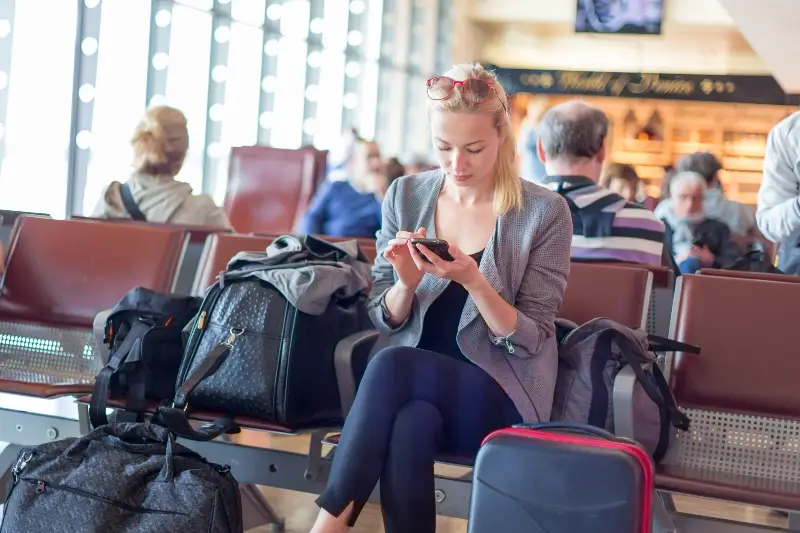You probably use WiFi in cafes, libraries, hotels, airports, and other public locations with your mobiles and computers. Despite their convenience, they are frequently insecure.
Someone else could be able to see the information you transfer through websites or mobile apps after you joined into a WiFi network.
This is especially risky if you use public WiFi to connect to websites or enter sensitive information, like logging in to your email or bank account.
If you must use these public WiFi, follow these steps to help protect your information:
Contents
- 1. Check if the Network is Legitimate
- 2. Connect to a VPN
- 3. Be Cautious About the Websites You Visit
- 4. Check What You’re Signing Up For
- 5. Use Your Mobile Phone Network Instead of WIFI
- 6. Keep in Mind All Wi-Fi Links May Make You at a Risk
- 7. Use Antivirus Protection
- 8. Update Your Software Regularly
- 9. Keep the Firewall Enabled
1. Check if the Network is Legitimate
Make sure you’re connecting to a network that is actually provided by the establishment you’re in.
If you’re at a cafe, look for the name of the business on the list of available networks. Sometimes scammers will set up fake networks with names that are similar to nearby businesses in order to lure people in.
2. Connect to a VPN
A VPN, or Virtual Private Network, is a type of online security that allows you to keep your personal data and activity private when using the internet. A VPN encrypts your internet connection and reroutes it through a secure server, hiding your activity from prying eyes. This makes it difficult for anyone to track or hack your devices.
A VPN also hides your IP address, which is a unique identifier that can be used to track your online activity. By hiding your IP address, a VPN makes it harder for websites and advertisers to target you with personalized content.
3. Be Cautious About the Websites You Visit
Even if you’re using a VPN, you should still be careful about the kinds of websites you visit while connected to public WiFi.
If possible, avoid logging into accounts that contain sensitive information, like your email or bank account.
And be aware that any website you visit could potentially be compromised, so avoid entering any personal information, like your credit card number on websites while using public WiFi.
Use https:// URLs whenever possible, as they provide an extra layer of security. You can usually tell if a website is secure if the URL starts with https:// rather than just http://.
4. Check What You’re Signing Up For
Some public WiFi networks require you to agree to terms and conditions before you can connect.
Make sure you read these carefully, as you may be inadvertently agreeing to give the network access to personal information like your email address or even your location.
5. Use Your Mobile Phone Network Instead of WIFI
It would be wise to use your mobile phone network rather than a public Wi-Fi connection if you need to access any websites that need put sensitive information, such as your bank account.
This is because your mobile phone network is much more secure than public Wi-Fi, and your data will be better protected.
6. Keep in Mind All Wi-Fi Links May Make You at a Risk
Question everything. If you get an email with a link to a website while on public Wi-Fi, think twice before clicking it. It could be a phishing attempt.
You should also be aware that someone may have set up a fake Wi-Fi network in order to try and steal your information. So, if you’re ever unsure about the legitimacy of a Wi-Fi network, it’s best to err on the side of caution and not connect.
7. Use Antivirus Protection
Make sure you have some sort of antivirus protection on your devices, as this will help to protect your information from being stolen by malware.
8. Update Your Software Regularly
Make sure that all your software is up to date. This includes your operating system, as well as any apps you have installed.
The easiest way to protect your information is to maintain all software up to date because outdated software may have security flaws that criminals can exploit.
9. Keep the Firewall Enabled
Another way to help protect your device is to keep the firewall enabled. A firewall can help to block incoming connections from potentially malicious devices, and can also be used to restrict outgoing connections from your device.
